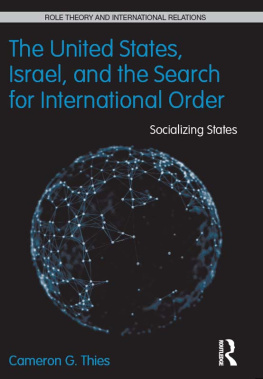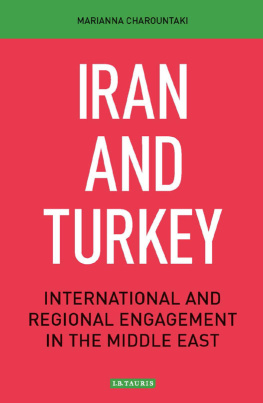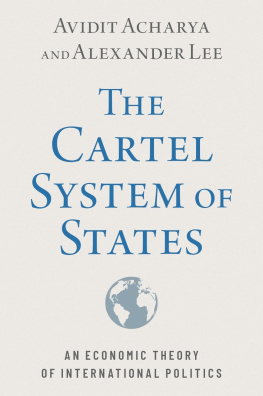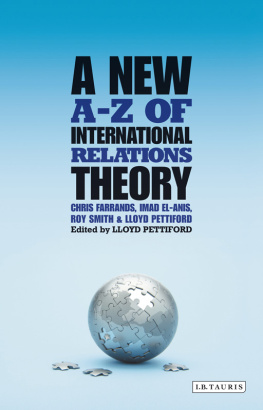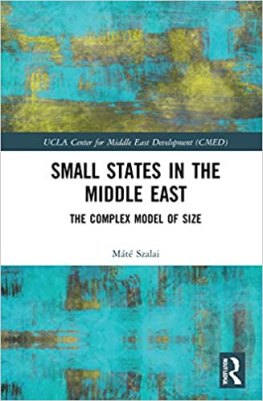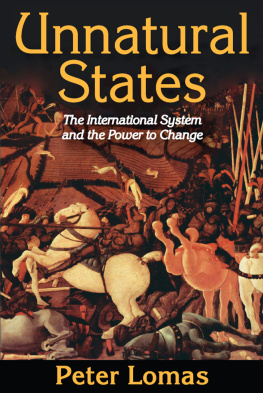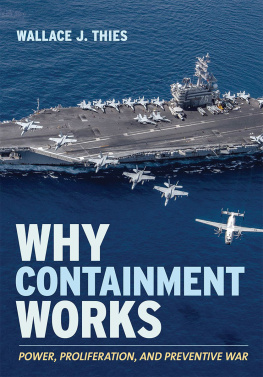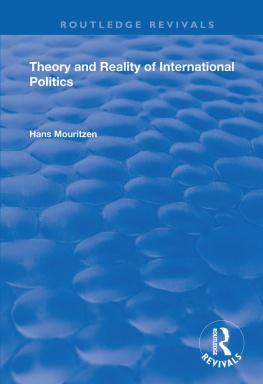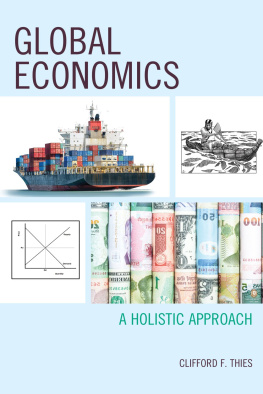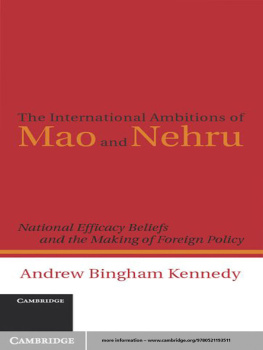The United States, Israel, and the Search for International Order
How do emerging states become full, functioning members of the international system? In this book, Cameron G. Thies argues that new and emerging states are subject to socialization efforts by current member states, which guide them in locating their position in the international system.
Thies develops a theoretical approach to understanding how states socialize each other into and out of different roles in the international system, such as regional power, ally, and peacekeeper. The concept of state socialization is developed using role theory, a middle-range theory developed in the interdisciplinary field of social psychology. This middle-range theory helps to flesh out the theoretical mechanisms often missing in grand theories like neorealism and constructivism. The result is a structural theory of international politics that also allows for the explanation of actual foreign policy behavior by states. The foreign policy histories of the United States and Israel are analyzed using this theoretical approach to show how international social pressure has affected the kinds of roles they have adopted throughout their histories, as well as the kinds of roles that they have not been allowed to adopt. By considering the effects of international socialization attempts on their foreign policy behavior, Thies shows the well-known cases of the United States and Israel in a new light.
The United States, Israel, and the Search for International Order argues that the process by which states learn their appropriate roles and behaviors in the international social order is crucial to understanding international conflict and cooperation, which will be significant for those studying both theory and method in international relations, foreign policy, and diplomatic history.
Cameron G. Thies is Professor, Harlan E. McGregor Faculty Fellow, and Chair of the Department of Political Science at the University of Iowa. His research focuses on International Relations theory through the contributions of role theory, as well as state building in the developing world. He has published widely in journals such as World Politics, European Journal of International Relations, British Journal of Political Science, and International Studies Quarterly.
Role Theory and International Relations
Edited by Cameron G. Thies, University of Iowa, and Juliet Kaarbo, University of Edinburgh
The Role Theory and International Relations Series aspires to attract and publish the latest and best research integrating knowledge in the field of International Relations with role theory. This aspiration cuts across a wide swath of subfields, including foreign policy analysis, peace and security studies, international political economy, diplomatic studies, and international organization. While each of these subfields of study is presently organized as an island of theory, this series intends to integrate their signature phenomena within a system of knowledge, a theory complex or an alliance among different subfields. This series showcases the ability of role theory to generate useful theoretical insights on its own or in combination with existing theories across these traditional subfields. Role theory's conceptual repertoire, plus its ability to span multiple levels of analyses and the major meta-theoretical divides in the discipline, position it to be an important integrative force in the study of International Relations.
Rethinking Foreign Policy Analysis
States, Leaders, and the Microfoundations of Behavioral International Relations
Edited by Stephen G. Walker, Akan Malici, and Mark Schafer | The United States, Israel, and the Search for International Order
Socializing States
Cameron G. Thies |
The United States, Israel, and the Search for International Order
Socializing States
Cameron G. Thies
First published 2013
by Routledge
711 Third Avenue, New York, NY 10017
Simultaneously published in the UK
by Routledge
2 Park Square, Milton Park, Abingdon, Oxon OX14 4RN
Routledge is an imprint of the Taylor & Francis Group, an informa business
2013 Taylor & Francis
The right of Cameron G. Thies to be identified as author of this work has been asserted by her in accordance with sections 77 and 78 of the Copyright, Designs and Patents Act 1988.
All rights reserved. No part of this book may be reprinted or reproduced or utilized in any form or by any electronic, mechanical, or other means, now known or hereafter invented, including photocopying and recording, or in any information storage or retrieval system, without permission in writing from the publishers.
Trademark notice: Product or corporate names may be trademarks or registered trademarks, and are used only for identification and explanation without intent to infringe.
Library of Congress Cataloging-in-Publication Data
Thies, Cameron G.
The United States, Israel and the search for international order: socializing states / Cameron G. Thies.
pages ; cm. (Role theory and international relations ; 2)
1. International relationsPhilosophy. 2. International organization.
3. Newly independent states. 4. United StatesForeign relations.
5. IsraelForeign relations. I. Title.
JZ1242.T53 2013
327.101dc23
2012045361
ISBN: 978-0-415-81847-6 (hbk)
ISBN: 978-0-203-58124-7 (ebk)
Typeset in Sabon
by Apex CoVantage, LLC
For Steve Walkeran exceptionally gifted mentor and friend.
Contents
This book has been a long time in the making. The first version was produced as my Ph.D. dissertation under the direction of Stephen G. Walker. Steve was an incredibly patient advisor who allowed me to try out a number of potential topics in the Fall Semester of 1998 before settling on the idea of using role theory to flesh out the concept of state socialization. I was heavily influenced at the time both by structural theorizing in Kenneth Waltz's and Alexander Wendt's work, and the more agent-oriented work carried out by my advisor. Walker's own previous work on role theory had provided a number of ways to think about incorporating role theory into existing international relations theory. The agent-structure debate had been in full swing for a while at that point in the discipline, and constructivism as we have come to know it was just beginning to find adherents. The idea that states could be socialized into or out of certain roles and associated behaviors seemed to me the ideal solution to marrying international relations theory and foreign policy analysis, as well as the agent-structure debate. Steve encouraged me to pursue this line of thinking and provided such fast turnaround commentary on my draft chapters that I was able to complete the dissertation by August of 1999 in time for the start of my first academic position.
The intellectual milieu at Arizona State provided exactly the right mix of ideas and tools to complete the dissertation. Carolyn Warner introduced me to institutional theory and associated methodological approaches, like the analytic narrative, that were essential in developing the socialization game and carrying out the case studies of the United States and Israel. Colin Elman and Miriam Fendius Elman both lent their interest in realist theory to the project, helping me to think through the possibilities and limits of fleshing out the socialization concept already contained in Waltzian neorealism. Colin and Mimi also brought their developing focus on improving the rigor of qualitative methods to the project. Sheldon Simon grounded my analysis through his traditional national security focus. In addition to my actual committee members, I owe an intellectual debt to Pat McGowan, Richard Ashley, and Roxanne Doty, each of whom influenced my thinking about structural theorizing in his or her own way.

